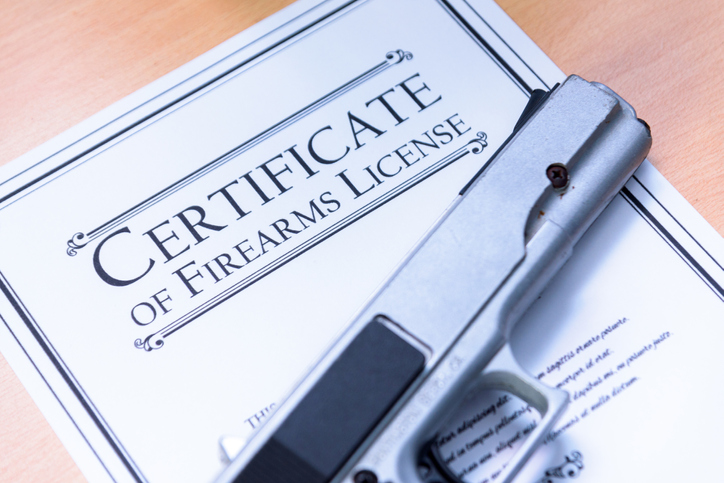
You won’t find any licensing requirements to practice as a private investigator in Mississippi, but don’t think that a lack of regulations here has created an environment of bottom-feeding PIs with questionable ethics.
The opposite is true. Mississippi PIs are upstanding professionals who are often called to the profession after retiring from careers in law enforcement, corrections, and the military. They are fierce defenders of the legal system and seekers of justice, which is why their expertise is valued by everyone from trial attorneys to corporations to insurance companies.
And while they lend their talents to gather evidence for lawsuits, bust insurance fraudsters, and perform background investigations, sometimes their work creates truly meaningful changes in people’s lives.
For example, in July 2019, Mississippi private investigator Les Tannehill was credited with finding a Raymond woman who had been missing since January of that year. Friends of the woman contacted Tannehill about two months after her disappearance. After discovering that the woman was not kidnapped but left on her own, he began the search and found her, alive and well but in need of psychiatric attention. Tannehill’s actions likely saved the woman’s life and brought her home to her loved ones.
There are only around 130 private investigators working in Mississippi as of May 2021 reports, according to the Mississippi Department of Employment Security. So you can be sure there’ll be plenty of room for you to make your mark here without bumping into too much competition.
Step 1. Complete an Education Program in Mississippi
An education in criminal justice or a similar program is a smart first step for many individuals seeking careers as private investigators; you must enroll in a certified investigator program.
In addition to serving as a solid foundation for this profession, a bachelor’s degree, graduate degree, or graduate certificate in criminal justice, computer forensics, security management, investigation, or a related program is also mandatory for other professions in the field of law enforcement or investigations. As such, completing a degree program is a logical step for anyone with an interest in the private investigations field.
Step 2. Seek Experience in Criminal Justice
Just as education is an important aspect of the field of private investigation, so is experience, as many private investigation agencies seek individuals with experience in investigations or similar areas. As such, upon graduating from a college degree program, it may be wise to seek entry-level employment in an investigative or detective agency to gain valuable experience in the field.
Step 3. Attain Professional Recognition in Mississippi
Step 3. Attain Professional Recognition in Mississippi
Even though Mississippi does not currently have any laws governing the practice of private detectives in the state, many professionals choose to pursue membership in a professional association to set themselves apart from others in the field.
For example, the Mississippi Private Investigators Association offers membership to private investigators in the state. Through membership, private investigators can receive professional recognition while also engaging in productive and practical dialogue about issues that affect the industry. Further, the Association will serve as a united front for the development of any future legislation in Mississippi.
Private investigators in Mississippi may also seek professional certification through a national association like ASIS International, which offers the Professional Certified Investigator designation, which requires at least 5 years of experience in investigations.
Step 4. Obtain a Permit to Carry a Concealed Weapon in Mississippi
If you intend to carry a firearm as a private detective, you must apply for a permit to carry a concealed weapon (pistol, stun gun, or revolver) through the Mississippi Department of Public Safety.

To qualify to obtain a permit to carry a concealed weapon, you must:
- Be at least 21 years old
- Be a resident of the State of Mississippi for at least 12 months (Active military or retired law enforcement personnel are exempt from this requirement.)
- Have no felony convictions
- Not chronically or habitually abuse controlled substances or alcohol
- Not been adjudicated mentally incompetent in the last 5 years
- Not be a fugitive from justice
- Not be disqualified to possess or use a weapon based on federal law
To apply to carry a firearm, you must:
- Complete an Individual Firearms Permit application.
- Notarize the application and bring it to the Department of Public Safety headquarters in Jackson or one of the Mississippi Highway Patrol substations, which are located in:
- Hattiesburg
- Greenwood
- Batesville
- New Albany
- Starkville
- Meridian
- Biloxi
- Brookhaven
- Present two forms of identification (one being a government-issued photo ID) and get fingerprinted when you drop off your application.
- Submit a fee in the amount of $112, which includes the application fee of $80 and the fingerprint fee of $32 (cash or check made payable to the Department of Public Safety).
Step 5. Maintain your Weapons Permit in Mississippi
To renew your permit, you must complete the Individual Firearms Permit Renewal application and submit the renewal application fee of $72. Permits are renewed every 5 years.
Private Investigator Salary Information for Mississippi*
According to the Bureau of Labor Statistics (BLS), private investigators in Mississippi earn an annual median salary of $36,340 as of May 2023. Better still, the top 10% of PIs in Mississippi earn a salary that starts at $87,660.
Private Investigator Salaries in Jackson and Gulfport
The median to top 10% salary range for PIs in the Jackson and Gulfport areas are:
- Jackson: $38,830 – $111,340, and home to approximately 50 PIs
- Gulfport: $55,510 – $90,410, and home to approximately 40 PIs
May 2023 US Bureau of Labor Statistics Salary and Job Market Figures for Private Detectives and Investigators reflect state data, not school-specific information. Conditions in your area may vary. Data accessed November 2024.











